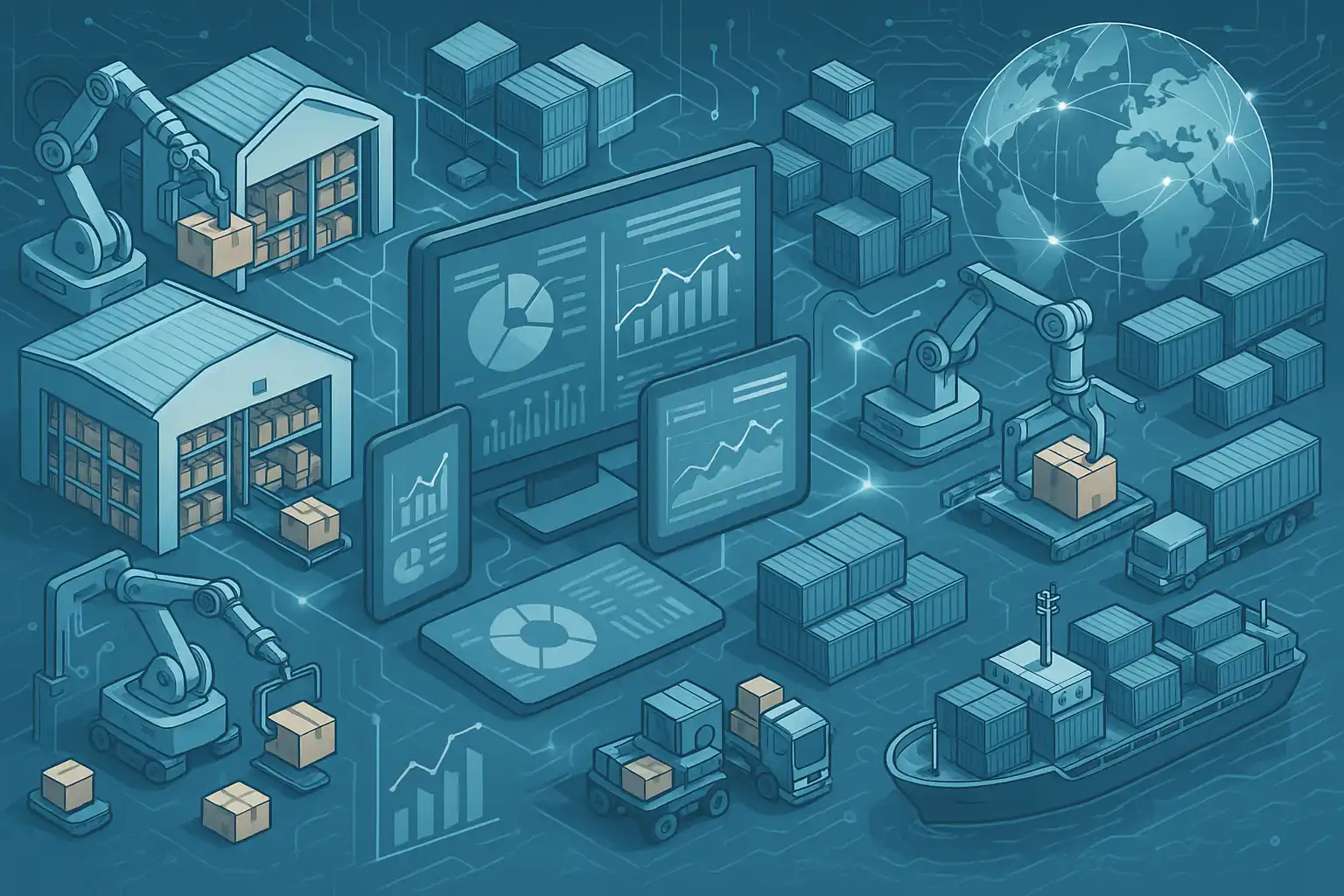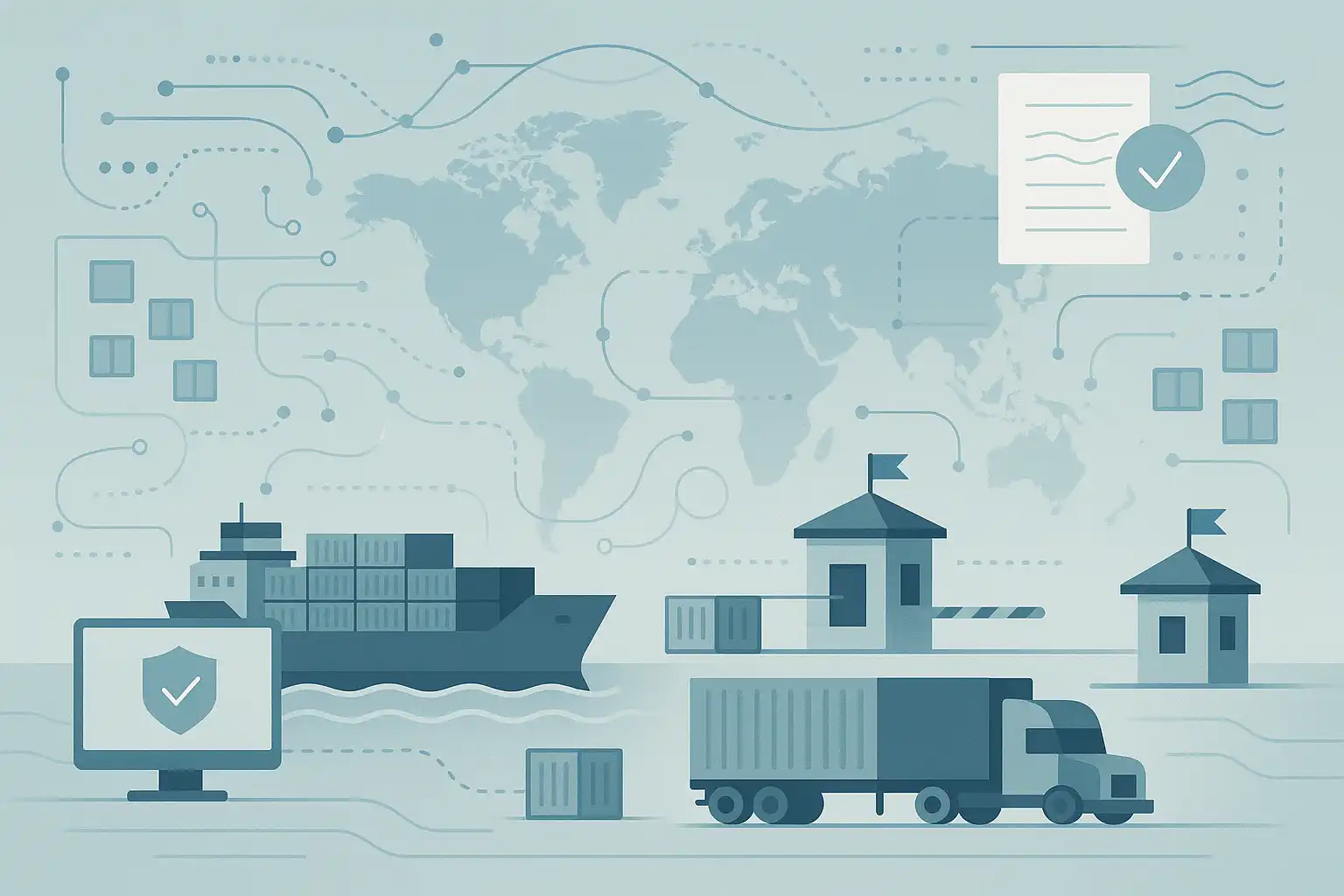
If you want your business to run smoother, save money, and deliver products on time, working with a supply chain analytics consultant could be the answer. These experts use advanced data analysis to help companies solve supply chain challenges and achieve better results from day one. In this article, you’ll learn exactly how a consultant can help you, what steps to take, and how data-driven approaches lead to real operational improvements.
What does a supply chain analytics consultant do for business optimization?
A supply chain analytics consultant helps companies make better use of their supply chains by gathering, analyzing, and interpreting data. Their role is to spot trends, identify bottlenecks, and recommend changes that lead to cost savings and smoother operations. Using tools like Power BI, Tableau, SAP, and Oracle, they turn raw data into easy-to-understand insights for decision-makers.
By studying data from all parts of your supply chain—like inventory, suppliers, shipping, and sales—they find weak spots and opportunities. For example, a consultant can analyze your inventory levels and suggest improvements so you never have too much or too little stock. They also help with demand forecasting, meaning you’ll be better prepared for shifts in customer demand. This approach increases customer satisfaction as orders are fulfilled more promptly and accurately.
In today’s fast-moving market, the ability to react quickly is vital. A supply chain analytics consultant brings a structured, data-backed method for making those quick decisions without added risk. They also help businesses navigate the complexities of global trade, using insights to manage risks, improve regulatory compliance, and even take advantage of programs like Foreign Trade Zones (FTZ) to cut duties and fees.

How do data-driven strategies reduce supply chain costs and improve efficiency?
Supply chain analytics consultants rely on data-driven methods to solve common supply chain problems. Here’s how they use data to make a real impact:
- Data Collection: They gather information from your ERP systems (like SAP or Oracle), inventory databases, and shipment tracking tools.
- Analysis: Using advanced analytics and visualization tools like Power BI and Tableau, they sift through large amounts of data to find hidden patterns.
- Optimization: With these insights, consultants recommend operational changes to minimize waste, optimize stock levels, and improve supplier relationships.
- Risk Management: By monitoring trends, a consultant can identify potential risks—like delays or supplier issues—and create plans to reduce their impact.
- Adoption of New Tech: They also suggest technologies such as automation and artificial intelligence, which can streamline manual tasks and speed up workflows.
For instance, one major retailer worked with a consultant to analyze their order fulfillment patterns. The result was a new system that predicted peak times, adjusted staffing, and improved delivery speeds, all while reducing overtime costs. This shows how turning analytics into action can bring measurable results.
What are the key steps for effective collaboration with a supply chain analytics consultant?
Success starts with good collaboration. For businesses looking to get the most from a supply chain analytics consultant, there are important steps to follow:
- Define Clear Goals: Start by outlining your main business challenges. Do you want to lower costs, speed up deliveries, or improve customer service? Let your consultant know.
- Share Accurate Data: Provide access to reliable information—ERP data, inventory records, shipment logs—so the consultant can build a full picture of your operations.
- Engage All Teams: Involve leaders from procurement, warehousing, logistics, and sales. This cross-functional cooperation ensures all perspectives are heard and solutions work for everyone.
- Use Technology Platforms: Leverage client portals and real-time dashboards to keep everyone updated on inventory or shipment status. This supports faster, more informed decisions.
- Stay Open to Change: Be willing to try new tools or adjust old processes based on the consultant’s recommendations. Adopting digital solutions like automation or better reporting often leads to sustained improvements.
For example, if your company is aiming to connect supply chain data directly to business goals, you could benefit from exploring data strategy alignment with business goals to ensure all improvements are truly relevant. Consultants guide this process, helping your teams work together and move towards your business targets.
Which tools and technologies do supply chain analytics consultants use?
Modern consultants rely on a toolkit that goes beyond spreadsheets. Here are some of the main platforms and technologies they use:
- ERP Systems: Platforms like SAP and Oracle centralize business data, making it easier to analyze and manage supply chain activities.
- Data Visualization: Tools such as Tableau and Power BI allow consultants to turn complex numbers into simple visuals for stakeholders.
- Predictive Analytics: Statistical models help forecast demand, so businesses know how much to produce or order.
- Automation: Automated systems handle repetitive tasks like order processing, boosting efficiency and reducing errors.
- AI and Machine Learning: These technologies can uncover patterns humans might miss, helping businesses spot risks or opportunities earlier.
Especially when scaling up, these solutions make it possible to handle more data and support smarter, faster decision-making. For companies eager to streamline processes, evaluating options with a consultant can lead to workflows similar to those highlighted in data processing workflows, where every step is optimized for efficiency.
How can a supply chain analytics consultant improve global trade compliance?
Doing business across borders can be tricky due to changing regulations and tariffs. A supply chain analytics consultant brings valuable support by using analytic tools to monitor compliance and suggest strategies for cost reduction and risk management. For example, they may recommend leveraging Foreign Trade Zones (FTZs), which allow companies to defer or reduce customs duties, ultimately cutting expenses.
A consultant also tracks regulatory changes and measures their impact on your supply chain. By keeping ahead of these shifts, your business stays compliant, avoids costly mistakes, and benefits from lower operating costs. Consultants use reporting tools and real-time data to ensure that trade documentation and shipments always meet legal standards.
For companies facing complex trade environments, working with a consultant with expertise in analytics can make a significant difference in navigating global regulations, especially when combined with insights from AI-powered business efficiency services to ensure maximum operational effectiveness.

What results can companies expect from engaging a supply chain analytics consultant?
When businesses invest in expert help, the rewards go beyond just numbers on a spreadsheet. The most common positive outcomes include:
- Lower operational costs due to improved inventory management and demand forecasting.
- Faster delivery times and fewer late shipments.
- Greater resilience in facing supply chain disruptions or global events.
- Higher customer satisfaction from accurate, on-time order fulfillment.
- Better compliance with trade regulations, reducing the risk of fines or delays.
- Actionable insights that support faster strategic decisions.
Many companies also notice improved internal communication and a more agile approach to change. Consultants not only provide technical know-how but also foster collaboration across teams, breaking down information silos. In fact, as digital transformation continues, more businesses are leveraging the benefits of AI business intelligence to unlock deeper supply chain insights and drive ongoing growth.
FAQ
What makes data analysis essential for supply chain optimization?
Data analysis is crucial because it reveals inefficiencies, forecasts demand, and provides a clear view of your operations. By understanding these factors, businesses can plan better, avoid costly mistakes, and stay competitive. Data-driven decisions are typically faster and more reliable, leading to more consistent results.
Can a small business benefit from a supply chain analytics consultant?
Yes, consultants can help businesses of all sizes. Small companies often benefit from tailored solutions that fit their specific needs and budget. By optimizing inventory and streamlining processes, even smaller firms can enjoy reduced costs and improved service levels.
How long does it take to see results after working with a consultant?
Most businesses notice improvements within a few months, depending on the complexity of their supply chain and the scope of changes. Some adjustments, like improved reporting or quick-win optimizations, may deliver benefits even faster. Lasting change often comes as new processes and technologies are fully adopted.
Is there risk involved in adopting new supply chain analytics technologies?
While new technologies always carry some risk, consultants help minimize this by developing a clear plan, providing training, and supporting smooth rollout. With the right preparation and ongoing support, the benefits usually outweigh the challenges, leading to a more efficient and resilient supply chain.
